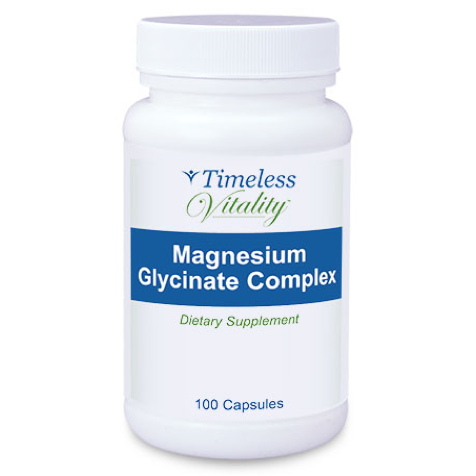 Magnesium deficiency is very common. Without magnesium, we would not be able to survive. It’s responsible for over 400 functions in the human body including cellular, bone, heart, and muscle function. Only about one fourth of Americans get adequate amounts through their diet and it’s estimated that 50% – 75% of people are magnesium deficient. The human body is not capable of making its own magnesium. It must be ingested, either from food or from supplements.
Magnesium deficiency is very common. Without magnesium, we would not be able to survive. It’s responsible for over 400 functions in the human body including cellular, bone, heart, and muscle function. Only about one fourth of Americans get adequate amounts through their diet and it’s estimated that 50% – 75% of people are magnesium deficient. The human body is not capable of making its own magnesium. It must be ingested, either from food or from supplements.
Just 1% of total magnesium is contained in the blood at any given time. Without that 1%, we would die. To maintain this constant 1%, our bodies automatically pull magnesium out of the bones, organs, and cells. Because of this, it’s possible for a person to be severely deficient and still show to be “normal” on blood work, so in order to diagnose magnesium deficiency, we have to look at the symptoms.
Magnesium – The Miracle Mineral
When most people think of the benefits of magnesium, they likely attribute it to a few time-tested remedies that have been around for eons. Soaking in an Epsom salt bath (magnesium sulfate) is one of the easiest and most soothing ways to provide relief for sore muscles and achy joints. Additionally, taking magnesium for relief from constipation has been a go-to remedy for generations.
Magnesium also plays a pivotal role in health of the cardiovascular system by decreasing the risk of heart attack and stroke. It regulates blood pressure and cardiac rhythm and aids in keeping cholesterol and triglycerides in check.
Magnesium supports the endocrine system by reducing insulin resistance and ensures that sugar in the bloodstream is properly absorbed by the muscles, cells, and the liver so that our bodies have the energy that it needs.
Studies have shown that it helps reduce both the frequency and duration of migraine headaches.
Additionally, it promotes a better sense of well-being and calmness. In fact, some studies have shown that magnesium has been as effective in treating depression as antidepressants. You can read more about this these studies at https://www.ncbi.nlm.nih.gov/pubmed/16542786
Causes of Magnesium Deficiency
Magnesium is the second most common vitamin deficiency in our country. (Number one is Vitamin D). Women, the elderly, and African Americans are at higher risk for magnesium deficiency though the reasons for this are not yet known. Pregnant women are also more at risk. In fact, some studies have shown that severe morning sickness may be caused by a magnesium deficiency.
Causes of Magnesium Deficiency include:
- Eating the “Standard American Diet” which contains large amounts of processed foods and sugar. Not only do these types of food prevent proper absorption of nutrients into the body, the foods themselves are nutritionally lacking.
- The use of proton pump inhibitors (also known as acid blockers) such as Nexium, Prevacid, and other brands, when taken long term. This medication interferes with the body’s ability to absorb nutrients.
- Taking certain types of antibiotics
- Taking Birth control pills
- Taking some types of high blood pressure medications
- Poor soil quality that lacks nutrients where food is grown
- Frequent use of cortico-steroids
- Estrogen dominance
- Alcoholism
- Insulin Resistance
- Type 2 Diabetes
- Gastrointestinal diseases such as Crohn’s, Celiac, and persons who are gluten intolerant
Magnesium Deficiency Symptoms
Low magnesium is linked to chronic inflammation which can cause premature aging, obesity, and serious disease. It also causes higher blood sugar, insulin, and cortisol levels which all disrupt healthy gut function and the entire endocrine system. Low magnesium levels is also a leading contributor to myocardial infarction (heart attack). It can also cause arrhythmias, heart palpitations, and tachycardia (fast heart beat). Additionally, if magnesium is lacking, then the bones are not going to be able to absorb calcium in order to stay strong.
Some symptoms are more-vague than others, so it’s important to discuss them with your health provider to determine if you need more magnesium. Symptoms may include:
- Chronic constipation
- Muscle aches, muscle cramps (especially at night), and muscle ticks
- Insomnia
- Daily fatigue or low energy
- Low mood
- Fast heart rate
- Numbness and tingling in the fingers and toes
- Heart palpitations or skipped heart beats
- Persistent migraines
- High blood pressure
- Allergies and asthma
- Anxiety
- Increased cavities
- Restless Leg Syndrome (RLS)
- Higher Cortisol levels
- Osteopenia and Osteoporosis
- Depression
How to Get Enough Magnesium
Fortunately, there are some easy fixes for magnesium deficiency! Diet is the first choice. Many foods contain magnesium, including the following:
- Leafy green vegetables (#1 source)
- Nuts and seeds
- Avocados
- Eggs (the yolks contain magnesium)
- Red meat
- Fatty fish such as mackerel, salmon, anchovies, sardines
- Whole fat cheese
- Dark chocolate
- Quinoa
- Broccoli
- Squash
- Banana
- Brown rice
- Legumes
Soaking in an Epsom salt bath is also a great way to get a boost of magnesium since it is absorbed through the skin.

When starting a Magnesium supplement regime, keep in mind that your body is going to tell you exactly how much is right for you. Because Magnesium acts as a natural laxative, if you’re taking too high of a dose, you will likely experience some diarrhea. Just back off a bit on the amount you are taking until there are no side effects and you will have found the perfect amount for your body. Some people find it helpful to split their dose between morning and night.
Magnesium Oxide is another type that is frequently found in multi-vitamins, however this form is not easily absorbed and often passes through the system and provides no health benefits.
For maximum absorption, it’s best to take Magnesium with Vitamin D3.
Medication Interactions
Magnesium supplements may interfere with some types of medications, especially antibiotics, blood pressure medications, diuretics, and some heart medications. Because of this, always check with your doctor before starting any new supplement regime.
Leave a Reply